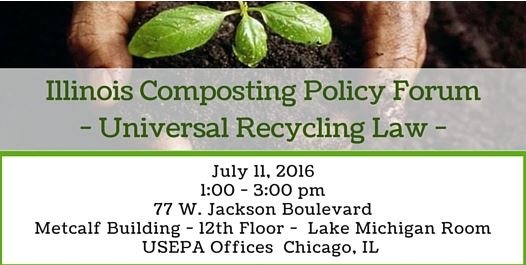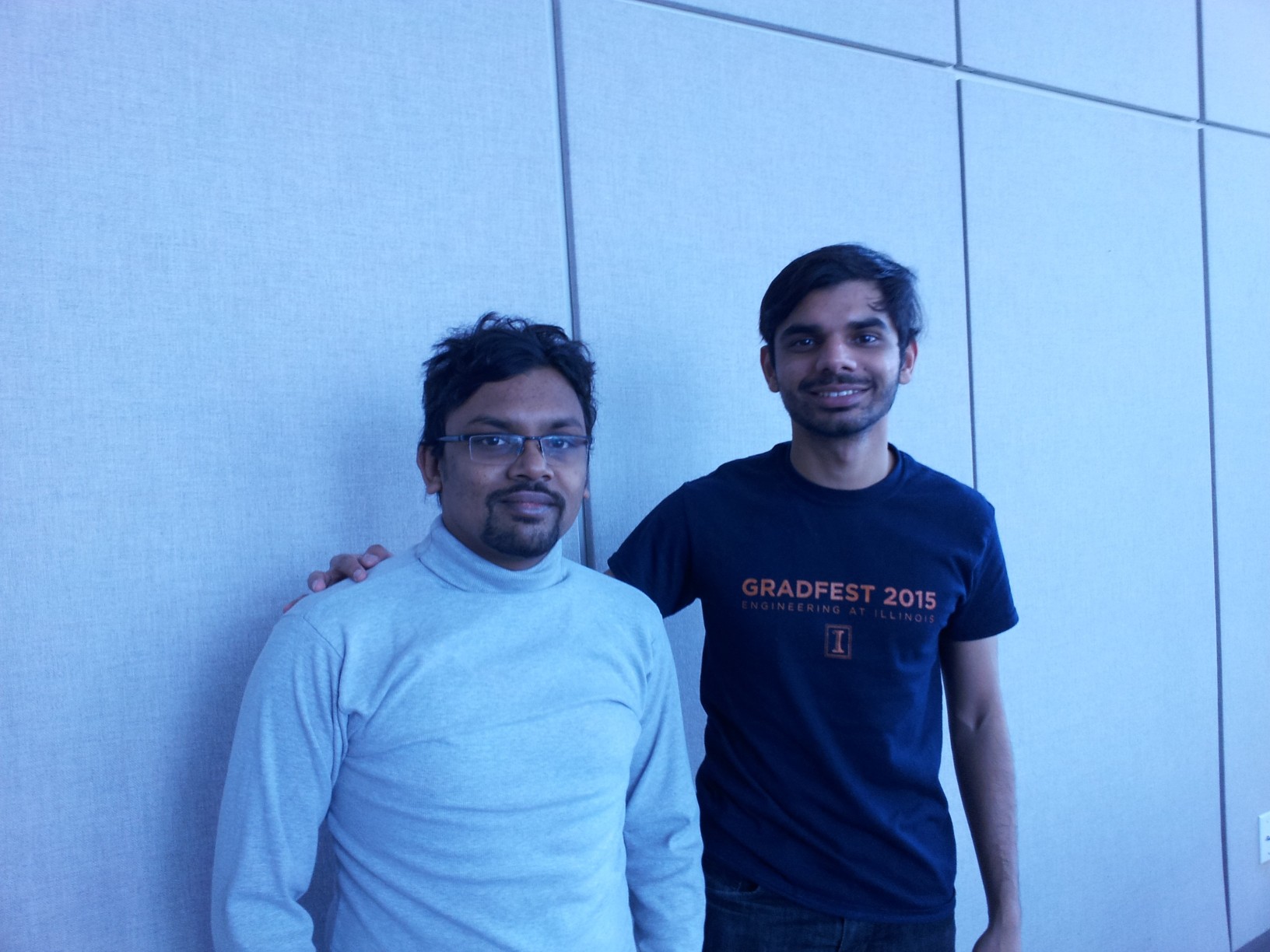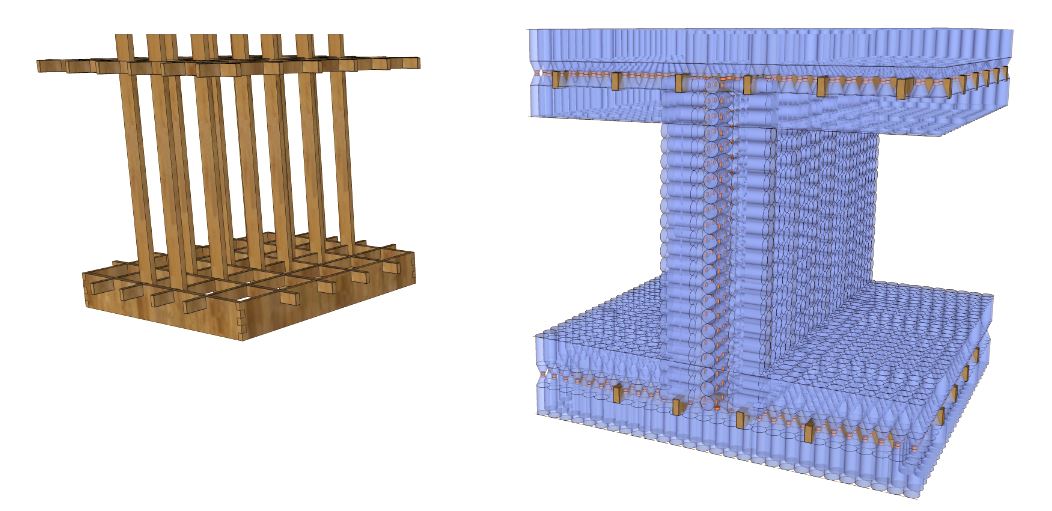[Champaign, Illinois April 4, 2016] – The Illinois Sustainable Technology Center (ISTC) today received a Gold award for its achievements in the State Electronics Challenge; a comprehensive nationwide environmental sustainability initiative that currently reaches more than 220,000 employees in 47 states. ISTC was recognized for its accomplishments in green procurement, energy and paper conservation, and responsible recycling of electronic office equipment in 2015.
“ISTC’s program is a truly outstanding example of a commitment to environmental leadership,” commented Lynn Rubinstein, State Electronics Challenge Program Manager. “This is the second year in a row that the program has earned a Gold Award.” She added that “ISTC is one of only 12 organizations nationally being recognized this year and the only one in Illinois.”
“We’re really pleased to have received recognition again. Participating in the State Electronics Challenge has provided a great framework for our organization to ensure that we’re making better choices in purchasing as well as continuing efforts to limit impacts in the use and end-of-life management phases,” said Joy Scrogum, Emerging Technologies Resource Specialist and coordinator of ISTC’s Sustainable Electronics Initiative (SEI).
As a result of these environmental initiatives, in 2015 ISTC saved enough energy to power 6 households per year, avoided greenhouse gas emissions equivalent to removing 8 cars from the road per year, as well as avoiding the generation of more than 50 pounds of hazardous waste – equivalent to the weight of a refrigerator.
ISTC has committed to purchasing computer and imaging equipment that is qualified by the Electronic Procurement Environmental Assessment Tool (EPEAT®) standard. EPEAT is an internationally recognized system that identifies office equipment that meets specified environmental performance criteria. It also uses power management and requires double-sided printing to decrease energy and paper usage, and ensures that at the end-of-life, equipment is recycled by a third-party certified electronics recycler – Secure Recycling Services & Secure Processors.
“ISTC was the first Illinois organization to participate in the State Electronics Challenge, joining back in 2011. We only began applying for recognition in recent years, after we took the time to write a specific policy that captured what we were already doing to make our electronics-related operations more sustainable, as well as setting forth purchasing standards. The written policy will help us stay on target and continuously improve in the coming years, through revisions as our goals change. ISTC provides technical assistance to organizations and businesses throughout the state, and we’ve been able to point clients and other University of Illinois departments to the SEC checklist and resources as a way of helping them tackle sustainable electronics issues in simple, manageable ways,” Ms. Scrogum stated.
The State Electronics Challenge offers its participants annual opportunities to document their achievements and receive recognition for those accomplishments. In 2015, the reported actions of 31 participants in green purchasing of electronic office equipment, power management, and responsible recycling resulted in a total of more than 1,250 tons of electronics being recycled, which, along with power management and green procurement:
- Prevented the release of almost 12,000 metric tons of carbon dioxide equivalent (MTCO2E). This reduction in greenhouse gases is equivalent to the annual emissions from 8,612 passenger cars.
- Saved enough energy to supply 7,845 homes per year
- Avoided the disposal of hazardous waste equivalent to the weight of 2,120 refrigerators
- Avoided the disposal of solid waste – garbage – equivalent to the amount generated by 388 households/year.
A full list of winners and their environmental accomplishments can be found on the State Electronics Challenge website (www.stateelectronicschallenge.net).
“The State Electronics Challenge provides state, tribal, regional and local agencies, as well as schools, colleges and universities and non-profit organizations with a great opportunity to integrate concepts of sustainability and waste reduction into their operations,” added Ms. Rubinstein. “It’s inspiring to see programs such as the one developed and implement by the ISTC to ensure that the highest environmental practices are met through the lifecycle of office equipment.“
The State Electronics Challenge awards were made possible through donations from Samsung, Panasonic, and the R2/RIOS Program.
About ISTC
ISTC is a division of the Prairie Research Institute on the campus of the University of Illinois at Urbana-Champaign. Its mission is to encourage and assist citizens, businesses, and government agencies to prevent pollution, conserve natural resources, and reduce waste to protect human health and the environment of Illinois and beyond. It promotes more sustainable technologies, processes, and practices through an integrated program of research, demonstration projects, technical assistance, and outreach. Learn more at www.istc.illinois.edu.
About the State Electronics Challenge
The State Electronics Challenge assists state, regional, tribal, and local governments to reduce the environmental impact of their office equipment. It annually recognizes the accomplishments of Partner organizations. The Challenge is administered by the Northeast Recycling Council (www.nerc.org). Currently, 157 state, tribal, regional, colleges, schools, universities, and local government agencies, and non-profit organizations, representing more than 212,600 employees, have joined the SEC as Partners. For more information on the SEC, including a list of current Partner organizations, visit www.stateelectronicschallenge.net.





 In the US, the beginning of May has people thinking of several celebrations, including Cinco de Mayo, Mother’s Day, and even Star Wars Day (May the 4th, as in “May the Fourth Be With You”). But did you know the first week of May is also celebrated annually as International Compost Awareness Week?
In the US, the beginning of May has people thinking of several celebrations, including Cinco de Mayo, Mother’s Day, and even Star Wars Day (May the 4th, as in “May the Fourth Be With You”). But did you know the first week of May is also celebrated annually as International Compost Awareness Week?
 adline has been extended until April 27th to submit applications for the EPEAT Purchaser Awards. The awards recognize excellence in green procurement of electronics. EPEAT Purchasers will earn a star for each product category for which they have a written policy in place that requires the purchase of EPEAT registered electronics.
adline has been extended until April 27th to submit applications for the EPEAT Purchaser Awards. The awards recognize excellence in green procurement of electronics. EPEAT Purchasers will earn a star for each product category for which they have a written policy in place that requires the purchase of EPEAT registered electronics.




